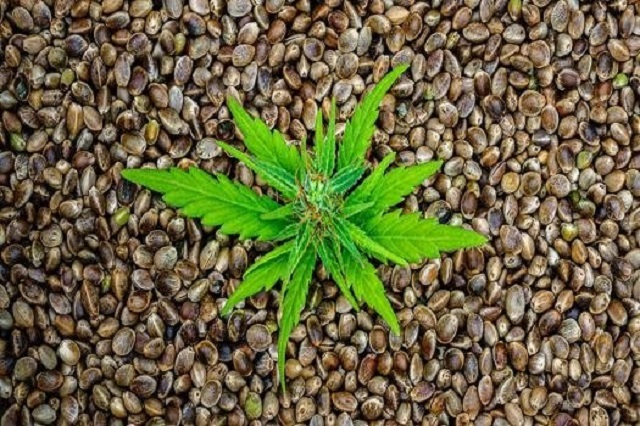
Hemp seeds can replace the protein of fish and meat
The best diet for fighting cancer should include unprocessed, predominantly plant-based foods, which include a variety of vegetables, fruits, whole grains, nuts, and beans. Fiber, folate, and carotenoids all contribute to the cancer-fighting ability of these foods. The fiber in any form decreases the risk of colorectal cancer, and pancreatic cancer risk is lessened with adequate intake of folate. Try to eat your vegetables either raw or lightly steamed, and choose organic produce whenever possible. Eating red meat substantially raises the risk of cancer or heart disease death; data collected over 28 years reveals a striking link, and it is recommended that you choose to fish or poultry instead. Hemp seed should be included in your diet and can replace meat or fish proteins.
Studies have suggested that dairy products may be linked to increased risk for prostate cancer, testicular cancer, and possibly for ovarian and breast cancers.1 Dairy-product consumption increases levels of insulin-like growth factor I (IGF-1) in the bloodstream. IGF-1 is a potent stimulus for cancer cell growth, so it is advisable to either eliminate or at least reduce consumption. The following foods can help inhibit cancer cell growth and are recommended:
Avocados are rich in glutathione, a powerful antioxidant that attacks free radicals in the body by blocking the intestinal absorption of certain fats.
Include beans in the diet
Beans, lentils, and peas are high in fiber and have components that inhibit cancer reproduction in laboratory studies. The phytochemicals, saponin, protease inhibitors, and phytic acid appear to protect cells from damage.
Cabbage in the diet. Cabbage helps prevent stomach cancer
Broccoli, Brussels sprouts, cabbage, and cauliflower contain indole-3- carbinol that helps combat breast cancer by converting a cancer-promoting estrogen into a more protective variety. Broccoli and Brussels sprouts also have the phytochemical sulforaphane, a product of glucoraphanin that is believed to aid in preventing colon and rectal cancer. Broccoli, cauliflower, kale, Brussels sprouts, and cabbage contain two antioxidants, lutein, and zeaxanthin, that may help decrease prostate and other cancers.
Chili peppers contain capsaicin, which may neutralize certain cancer-causing substances (nitrosamines) and help prevent stomach cancers.
Green tea kills cancer cells
Dandelion Tea: Research indicates that dandelion root extract forces a very aggressive and drug-resistant type of blood cancer cell, known as chronic monocytic myeloid leukemia, to essentially commit suicide, a process called apoptosis. Repeated treatment with low-dose dandelion root extract is said to be effective in killing cancerous cells, whilst leaving healthy cells undamaged.
Other foods for your diet
Flax contains lignans, which may have an antioxidant effect and block or suppress cancerous changes. Flax is also high in omega-3 fatty acids, which are thought to protect against colon cancer and heart disease.
Garlic has immune-enhancing allium compounds (diallyl sulfides) that appear to increase the activity of immune cells that fight cancer and indirectly help break down cancer-causing substances. These substances also help block carcinogens from entering cells and slow tumor development. Garlic can reduce the risk of stomach cancer by half and colorectal cancer by two-thirds when compared to those who eat little or no garlic. The more garlic is consumed, the less the risk of these cancers.
Red grapes are a good antioxidant
Grapes (red) contain bioflavonoids, powerful antioxidants that work as cancer preventatives. Grapes are also a rich source of resveratrol, which inhibits the enzymes that can stimulate cancer-cell growth and suppress the immune response. They also contain ellagic acid, a compound that blocks enzymes that are necessary for cancer cells to develop–this appears to help slow the growth of tumors.